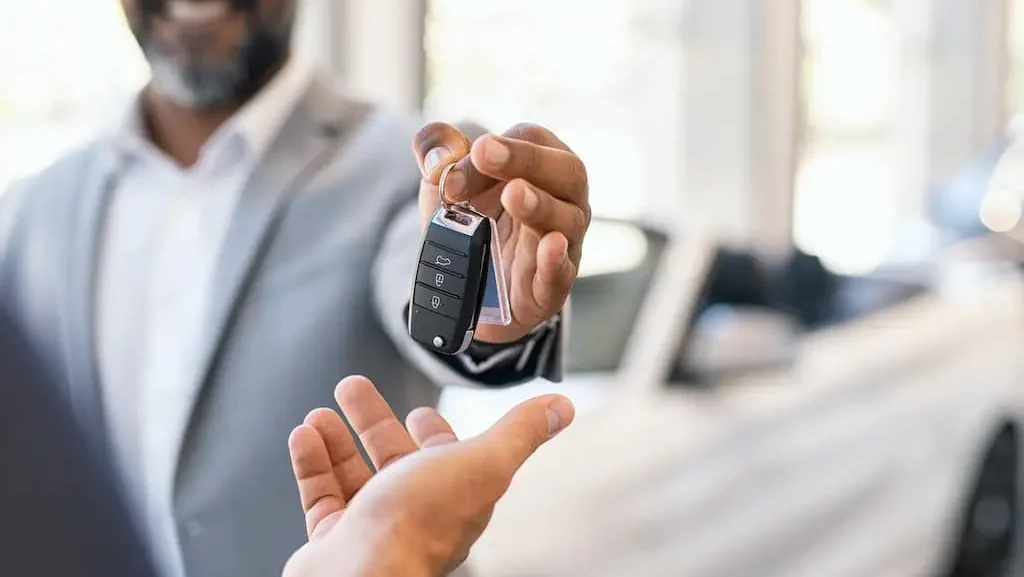The Proof of Ownership Certificate (POC) is an essential document in Nigeria, primarily serving as evidence that an individual legally owns a vehicle.
It is issued by the Nigeria Police Force in collaboration with the Federal Road Safety Corps (FRSC).
This certificate is crucial for vehicle owners as it provides an official record of ownership, which can be used in situations such as transferring ownership, settling disputes, or proving ownership in the case of theft.
This guide provides a step-by-step process on how to obtain the Proof of Ownership Certificate in Nigeria.
What is Proof of Ownership Certificate?
A Proof of Ownership Certificate is a document that serves as evidence that an individual or entity legally owns a specific asset, property, or item.
This certificate is used in various contexts, including real estate, intellectual property, vehicles, and other valuable assets. Here’s an overview of what such a certificate might include:
Key Components of a Proof of Ownership Certificate:
- Title
- Owner’s details
- Description of the asset
- Date of ownership
- Legal or registration details
- Notary or authorized signature
- Official seal or stamp
Common Uses:
- Proof of ownership for land or property is usually documented through a title deed.
- Vehicle ownership is often proven with a title certificate issued by a state or national motor vehicle department.
- Patents, copyrights, or trademarks have certificates issued by relevant government offices.
- High-value items like art, jewelry, or collectibles might have certificates issued by the seller or a third-party verifier.
How to Obtain:
- For Real Estate: Obtain a title deed from the land registry or relevant local authority.
- For Vehicles: Contact the motor vehicle department in your state or country.
- For Intellectual Property: Apply through the relevant patent or trademark office.
- For Personal Property: Request a certificate from the seller or a recognized third-party certification service.
Importance:
This document is crucial in disputes over ownership, for legal purposes, and when selling or transferring the asset to another party.
Would you like more detailed information on a specific type of Proof of Ownership Certificate?
Type of Proof of Ownership Certificate
Proof of Ownership Certificates are documents that verify ownership of various types of assets or property. The specific type of certificate depends on the nature of the asset. Here are some common types:
- Land or Property Title Deed: This is a legal document that proves ownership of a piece of real estate. It includes details about the property, the owner’s name, and any associated encumbrances.
- Vehicle Title: A certificate that verifies the ownership of a vehicle, such as a car, motorcycle, or boat. The title includes the Vehicle Identification Number (VIN), the owner’s name, and the vehicle’s details.
- Share Certificate: A document issued by a company to a shareholder, certifying that the individual owns a certain number of shares in the company.
- Certificate of Ownership (for intellectual property): This includes trademarks, patents, and copyrights. These certificates indicate the owner of the intellectual property and the details of the registration.
- Bill of Sale: A document that acts as proof of ownership transfer between a seller and a buyer for movable items like furniture, electronics, or other personal goods.
- Certificate of Title (for boats or aircraft): Similar to a vehicle title, this document proves ownership of boats or aircraft, including essential details like registration numbers and the owner’s identity.
- Cryptocurrency Wallet Ownership: Although not a traditional certificate, ownership in the cryptocurrency world is often proven through control of private keys associated with a wallet.
Each of these certificates serves as legal proof that the holder has ownership rights over the specified asset.
Steps to Proof of Ownership Certificate in Nigeria
1. Understand the Requirements
Before you begin the application process, ensure that you meet all the necessary requirements. Typically, you will need the following documents:
- Valid Identification: A government-issued ID, such as a National ID card, International Passport, Driver’s License, or Voter’s Card.
- Vehicle Documents: These include the vehicle license, insurance certificate, and the customs duty clearance (for imported vehicles).
- Proof of Address: A utility bill, bank statement, or other documents showing your current residential address.
- Purchase Receipt: This is essential, especially if you bought the vehicle from a dealership or a private seller. It serves as evidence of the transaction.
2. Visit the Appropriate Office
The Proof of Ownership Certificate is usually issued by the Nigeria Police Force or through the Motor Licensing Office (MLO) in conjunction with the FRSC.
Therefore, you must visit the nearest Motor Licensing Office in your state. Some states may also allow you to start the process at designated banks or online platforms linked to the MLO.
3. Complete the Application Form
Once at the MLO, request the Proof of Ownership Certificate application form. Fill out the form with accurate details, ensuring that all information corresponds with the documents you provided. Incorrect or inconsistent information could delay the processing of your certificate.
4. Submit the Required Documents
After completing the form, submit it along with the necessary documents. The officials will review your application to ensure all details are correct and that you have provided all required documentation.
5. Pay the Processing Fee
You will be required to pay a processing fee, which varies depending on the state and the type of vehicle.
The fee can usually be paid at the MLO, designated banks, or through an online platform if the state supports digital payments.
6. Biometric Data Capture
As part of the process, you may need to provide biometric data, including fingerprints and a photograph. This step helps in creating a secure and verifiable record of vehicle ownership.
7. Receive a Temporary Certificate
In some cases, you may be issued a temporary Proof of Ownership Certificate while your application is being processed.
This temporary certificate serves as proof that your application is in process and can be used for a limited time.
8. Collect Your Proof of Ownership Certificate
After your application has been processed, which typically takes a few days to a week, you will be notified to collect your Proof of Ownership Certificate.
Ensure that all details on the certificate are accurate before leaving the office.
9. Verify Your Certificate
It’s essential to verify the authenticity of your Proof of Ownership Certificate. You can do this by checking the certificate number against the FRSC or Police database. This can often be done online or by visiting the MLO.
10. Keep Your Certificate Safe
Once you have obtained your Proof of Ownership Certificate, keep it in a safe place. It is an essential document that may be required in various situations, such as when selling the vehicle or in the event of a legal dispute.
You can get the proof of ownership certificate in Nigeria from the comfort of your home by CLICKING HERE!!!
READ ALSO:
- How to Check Plate Number Owner in Nigeria?
- Who Issues Vehicle Plate Number in Nigeria?
- How Much to Renew Car Papers in Lagos in 2024?
- Fine for Expired Car Papers in Nigeria 2024
- How to Get Car Papers if Lost in Nigeria
Obtaining a Proof of Ownership Certificate in Nigeria is a straightforward process if you follow the required steps and provide accurate documentation.
This certificate is crucial for proving legal ownership of your vehicle, ensuring that your rights are protected, and simplifying processes like ownership transfer or dispute resolution.
Always ensure you keep this document secure and accessible, as it is an essential part of vehicle ownership in Nigeria.




